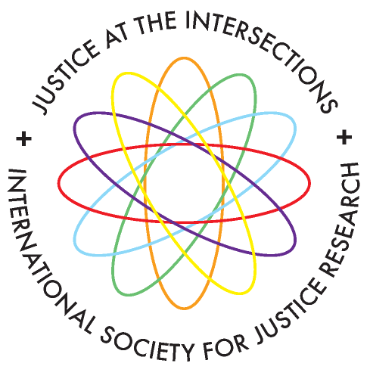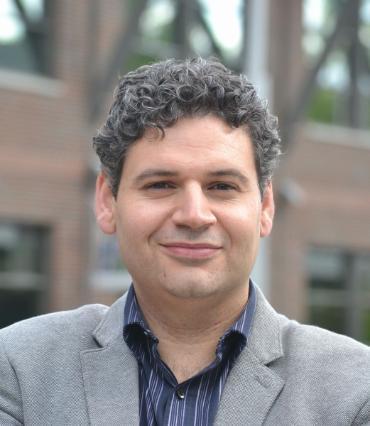2025 International Society for Justice Research Conference
At Seattle University
/0x16:1130x737/prod01/channel_34/media/seattle-university/testing123/Hero-seattleskyline-night-1900X1267-1130X753.jpg)
Justice at the Intersections
The 20th biennial meeting of the International Society for Justice Research (ISJR) will be held from July 1 to July 2, 2025 in Seattle, Washington (USA).
The conference will be organized and hosted by Fade Eadeh and Onur Bakiner from Seattle University. The scientific program will include paper talks, poster presentations, panels, and symposia.
We welcome research presentations on any topics of justice and morality, noting the interdisciplinary nature of this field that includes psychology, sociology, political science, criminology, legal studies, philosophy, etc. Presentations often explore intraindividual processes and individual decision-making, interpersonal and intergroup relations, organizations and institutions, as well as society, politics, and culture.
The conference theme this year will be "Justice at the Intersections." Although all research on the topics of justice and morality are welcome, the program committee particularly welcomes submissions highlighting how racism, sexism, environmental degradation, colonialism, and violent conflict intersect to affect marginalized communities, encouraging us to re-imagine justice with an intersectional lens.

Conference details
- 2025 International Society for Justice Research Annual Conference
- July 1 - July 2
- Seattle University, 901 12th Avenue, Seattle, WA 98122
- ISJR Membership Registration and Portal
- 2025 ISJR Conference Program
Paper Submissions and Registration
Important dates:
December 1, 2024: Call for papers issued
December 15, 2024: Submission portal opens
March 15, 2025: Submission deadline for talks and poster presentations
TBA: Notification of acceptance by the program committee
April 7, 2025: Registration opens
July 1, 2025: Conference Begins!
Conference Registration
Keynote Speakers
Dr Crystal C. Hall - Website

Crystal Hall is the John and Marguerite Walker Corbally Professor in Public Service and Adjunct Associate Professor of Psychology at the University of Washington. Her research pursues the integration of psychology into the design and implementation of public policy. She has collaborated with government agencies at every level, including work with the U.S. White House Social and Behavioral Sciences Team. She holds a PhD and MA in Psychology from Princeton University and a BS from Carnegie Mellon University in both Decision Science and Policy and Management.
Dr Karam Dana - Website

Karam Dana is the Alyson McGregor Distinguished Professor of Excellence and Transformative Research and the founding director of the American Muslim Research Institute at the University of Washington Bothell. His research focuses on transnational political identities, civic engagement, and political participation, particularly among Palestinians and American Muslims. As an interdisciplinary scholar, he explores the intersections of religion, identity, and politics, addressing issues affecting marginalized communities.
Dr Pilar Margarita Hernández Escontrías - Website

Pilar Margarita Hernández Escontrías (she/her/hers/ella) is a Chicana/Xicana educator who lives with faith that a more loving and just world is possible. The beneficiary of generations of sacrifice and activism, her research examines the intersections between law, inequality, and the history of racial capitalism from a critical race perspective and centering abolitionist vision and praxis. Across a range of sites and generating empirical data, Hernández Escontrías’s work considers how law constructs and upholds settler-colonial projects over time through the development of infrastructures we know as criminal and immigration law.
Conference Themes
Justice at the Intersections
1. Identity, Power, and Policy delves into how racism, sexism, and other identity-based power structures shape policies, access to resources, and socioeconomic outcomes. Sessions will address gender- and race-based discrimination in justice systems, disparities in housing, education, health, and the workplace, and explore advocacy for transformative policy reforms.
2. Environmental Justice highlights how the climate crisis exacerbates existing inequalities and the need for inclusive, adaptive strategies. Topics may include global displacement, climate migration, and the intersections of economic, environmental, and social and/or racial justice in climate action.
3. Legacies of Colonialism explores how colonial histories continue to shape systems of power, privilege, and resource allocation today. Topics may include land dispossession, Indigenous rights, cultural erasure, and decolonization efforts in policy, education, and advocacy.
4. Justice and Technological Change regards how fast-paced technological change promises to improve lives and serve justice, but its effects in terms of discrimination, disinformation, and privacy violations need to be taken seriously. Topics may include critical science and technology studies, societal implications of technology, and justice activism in the context of technological change.
2025 Conference agenda
Dining and Recreation
Coffee
- Peloton Cafe
- All-day cafe serving breakfast, lunch, and dinner
- 5 min walk from campus
- URL Coffee
- Cozy coffee shop with specialty lattes and breakfast sandwiches
- 5 min walk from campus
- Anchorhead Coffee – 12th Avenue
- Sleek, modern cafe known for creative lattes (try the “quaffle”!)
- Spacious seating and excellent pastries
- 5 min walk from campus
Food options nearby
- Momiji Capitol Hill
- Japanese restaurant, beautiful ambiance, happy hour menu (4pm–6pm) is a highlight
- 10 min walk from campus
- Via Tribunali
- Neapolitan pizza made in a woodfire oven
- Open patio, cozy indoor booths
- 5 min walk from campus
- Bai Tong Thai Street Cafe
- Modern Thai street food
- 5 min walk from campus
- Terra Plata
- Upscale American restaurant with rooftop seating
- 10–15 min walk from campus
- Donna’s
- Cocktails and Italian food served at the bar
- 4pm–6pm Happy Hours with pasta and cocktail specials
- 10 min walk from campus
- Byrek & Baguette
- Casual café serving Mediterranean-style pastries and sandwiches
- Known for warm Albanian byreks and fresh baguette sandwiches
- 5 min walk from campus
- Capitol Hill Neighborhood
- Lively and diverse neighborhood near campus
- Home to indie boutiques, music venues, parks, LGBTQ+ culture, nightlife, and a vibrant food scene
- Don’t miss Cal Anderson Park, Volunteer Park, and the iconic rainbow crosswalks on Pike & Pine
- Elliott Bay Book Company
- Seattle bookstore for 50+ years
- Welcoming environment with cafe inside
- Pike Place Market
- Outdoor market full of food, artwork, clothing, and more
- Visit earlier in the day on weekdays to avoid crowds
- Seattle to Bainbridge Island Ferry
- 35-min ferry ride
- $10.25 round trip for adults (19–64)
- Ferry Terminal Location (Google Maps)
- Seattle Center & Space Needle
- Iconic landmark with panoramic city views
- Nearby attractions: MoPOP, Chihuly Garden and Glass, Climate Pledge Arena
- Museum of Pop Culture (MoPOP)
- Music, sci-fi, fantasy, and pop culture exhibits
- Chihuly Garden and Glass
- Stunning indoor and outdoor glass art installations
- Seattle Art Museum (SAM)
- Located downtown near Pike Place
- Free on first Thursdays of each month
- Kerry Park
- Best skyline view of Seattle with Mt. Rainier in the background on clear days
- Discovery Park
- Seattle’s largest green space with forest trails, a beach, and lighthouse views
- Ballard Locks & Fish Ladder
- See boats pass through locks and watch salmon migrate (best June–September)
- Gas Works Park
- Park with skyline views of Lake Union and industrial remnants
- Seattle Underground Tour (Pioneer Square)
- Humorous and historical walking tour through Seattle’s original street level
Accommodation and Travel
- Silver Cloud Hotel
- Seattle University housing accommodations
- On-campus dorm, apartment, and dining options
- Overnight rates
- PURCHASE ON-CAMPUS HOUSING ON THE EVENT PAGE
- On-Campus Housing Survey
- On-campus dorm, apartment, and dining options
- Travel to/from airport (bus, uber, train, car rental)
- Link Light rail 30-minute ride from SEATAC station to Capitol hill
- Tickets available to purchase at the link light rail stations ($3 one-way)
- From Capitol Hill link station, you can: walk 15 minutes to campus, or take a 5-minute uber, or take the streetcar from Broadway & E Howell St to the Broadway & Marion stop
- Uber: 20-minute ride to from SEATAC to campus (with no traffic), cost can range from $40-$90 depending on the time and day
- Car rental
- From SEATAC, take the dedicated shuttle bus from the lower drive level outside baggage claim at the north or south end of the terminal
- Several options at SEATAC:
- Enterprise Rent-A-Car
- SIXT Rent a Car
- Alamo Rent A Car
- Link Light rail 30-minute ride from SEATAC station to Capitol hill
- Campus Map and Parking
- The ISJR conference will be held in the Seattle University Student Center
- Campus Map
- Visitor parking on campus:
- Purchase Permit through the PayByPhone App, or one of the pay stations on campus
- Parking locations include Visitor Lot, Murphy Garage level 1, Broadway Garage level 1, and Redhawk Center Lot